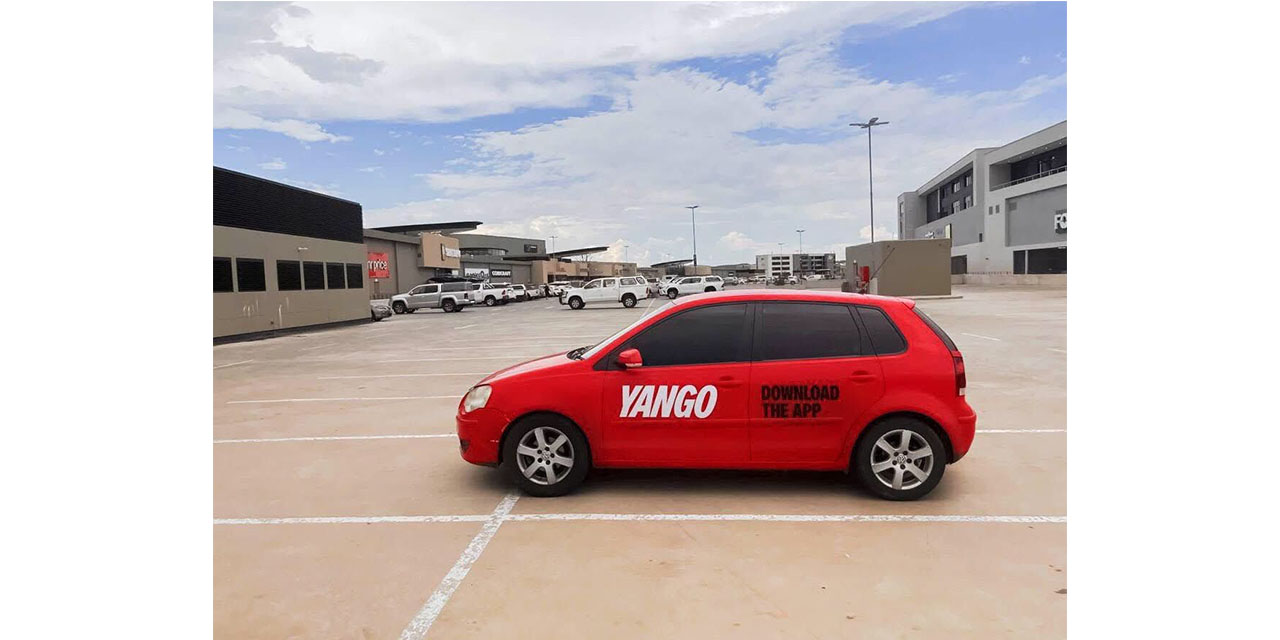Hertta-Maria Amutenja
City police have issued warnings to Yango drivers, highlighting their lack of proper transport permits as a violation of municipal regulations.
Several drivers have reported that when they can’t produce the necessary permits, police pull them over and threaten to issue tickets.
Yango is an international app-based ride-hailing service that already operates in many countries across Europe, Central Asia, the Middle East, and Africa, including Ivory Coast, Ghana, Cameroon, Senegal, Zambia, Angola, Congo Brazzaville, the DRC, Mozambique, and Algeria.
Imene Nicodemus, a Yango driver, shared his experience, explaining the difficulties drivers face.
“The problem with police officers is that whenever you say something that makes sense, they will try to say you think you are smart. But it’s not about smartness, it’s just the truth,” said Nicodemus.
He recounted an incident where an officer asked if he had a permit to operate a taxi.
“I told him I didn’t have one, but the company I work for should have one. He wanted to write me a ticket, but I refused, as I am just an employee of Yango. If he wanted to write a ticket, it should be directed to Yango and not me, the driver,” said Nicodemus.
Nicodemus suggested that the officer contact Yango management to clarify the situation, but instead, the officer issued a warning that if he saw Nicodemus’s car again, he would issue a ticket.
City police spokesperson Marceline Murapo addressed the situation, explaining the legal framework that governs public motor vehicles in Windhoek.
“We are aware of public motor vehicle operators who seek to operate public motor vehicles without following the right procedures, including Yango operators,” Murapo stated.
She cited Regulation 94(1)(a) of the Municipality of Windhoek Street and Traffic Regulations, as promulgated by Government Notice No. 9 of 1930.
“No motor vehicle shall ply for hire or reward, and no person shall permit, cause, or allow any motor vehicle to be used for the purpose of plying for hire or reward within the Municipal Area of Windhoek unless such motor vehicle has been duly registered by the Council,” said Murapo.
Murapo elaborated that any vehicle used to convey passengers or goods for hire or reward is presumed to be a public vehicle unless proven otherwise.
“Yango operators are, by definition, operating for reward, making their vehicles public transport. This means they should be authorised by the Council to operate,” she said.
Murapo further clarified the requirements by stating that you need Council authorization if you operate a public motor vehicle or are in the business of transporting for reward.
“The standard procedure is that you should have a permit, which dictates where you operate and how,” she said.
The city police are taking steps to ensure compliance with these regulations. “We are engaging all stakeholders on different platforms to educate them about what is expected of them. We will also enforce what is provided for by law in the event that we encounter any transgressions in this regard,” Murapo added.
Kumwe Dumeni, the company’s country manager, has not yet responded to questions by the time of publishing.




